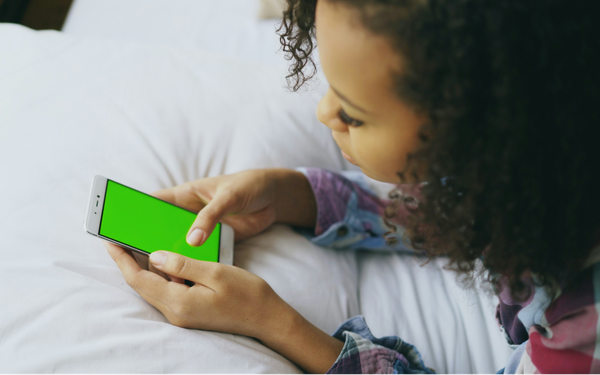
Phone use at bedtime is affecting Americans’ energy and
performance, according to a survey of over 1,004 people by mattress retailer Amerisleep.
In the study, 16% of bedtime scrollers admitted to falling asleep at work, compared to just 9% of those
who don’t use phones in bed. A quarter of them (25%) said they’ve missed a meeting, deadline, or shift at work because of it, with 22% missing out on a professional opportunity,
Yet, while 42% of respondents who use phones know it’s not healthy, they aren’t trying to change their habits, the study finds. Another 20% are trying to cut back on bedtime phone use
without much success.
Overall, Amerisleep reports, “those who don’t scroll before falling asleep reported better work performance, productivity, and satisfaction. They also had
lower stress and higher energy levels throughout the day.”
advertisement
advertisement
Indeed, bedtime phone use can also “negatively impact mental health…contribute to depression” and
“significantly worsen anxiety,” Amerisleep Certified Sleep Coach Rosie Osmun relates in a summary of the findings.
How wide a problem is this?
Amerisleep
reports that 86% of Americans use their phones in bed before sleep, spending an average of 38 minutes on them before sleep -- for a total of 231 hours, “or nearly 10 full days of lost rest every
year.”
Over a quarter (28%) stay up past 2:am on work nights due to scrolling, the study relates. And, “while 53% of Americans are in bed by 10:59 pm, 44% don’t fall
asleep until 12:00 or later.”
The study found generational differences. Gen Z reported the longest nightly scroll time, averaging 50 minutes before falling asleep.
Millennials followed at 37 minutes, then Gen X (35 minutes) and baby boomers (33 minutes).
The type of phone matters. While iPhone users (89%) were more likely to scroll
before sleep than Android users (82%), the latter reported more daytime sleepiness. Among Android users, 19% said they’d fallen asleep at work, compared to 13% of iPhone users.
Apps also
matter, with 24% of respondents saying they had deleted TikTok specifically to improve sleep -- 29% among iPhone users, compared to just 15% of Android users.
Yet TikTok (used by 33% of
respondents in bed) was hardly the largest sleep disruptor, with YouTube and Reddit (both at 43%) topping the list, followed by Facebook (also 33%).
While just 16% of respondents overall said
they had deleted an app for sleep improvement, 58% of those who did delete one said it helped them sleep better.
Women were more likely than men to be bedtime scrollers, 90% vs. 82%
.
The mattress company offers the following tips for breaking the cycle:
- Set a “phone curfew” by powering down an hour or two before bedtime.
- Keep
the phone out of reach.
- Replace scrolling with routines like reading, journaling or light stretching.
- Use built-in phone tools like “do not disturb,” “sleep
focus” or night shift.
- “Invest in a real alarm clock.”
Separately, research-happy Amerisleep has determined that New York is the most sleep-deprived state,
based on an analysis of 400 search terms inputted into Google Keyword Planner. New York’s top sleep deprivation search term was “insomnia.”
New York was followed by Virginia
(“restless leg syndrome” was found popular), Hawaii (“sleep paralysis”), Massachusetts (“how to stop snoring”) and Nevada (“how to fall
asleep”)
The least sleep-deprived states? Montana, Mississippi, Idaho, Arkansas and New Mexico.
The most sleep-deprived states
“have high population densities, with much of their population living in major cities. This implies that the hectic, fast-paced way of life in more urban areas may be
contributing to sleep deprivation. Commutes may also be longer,” says an Amerisleep spokesperson in a statement.”